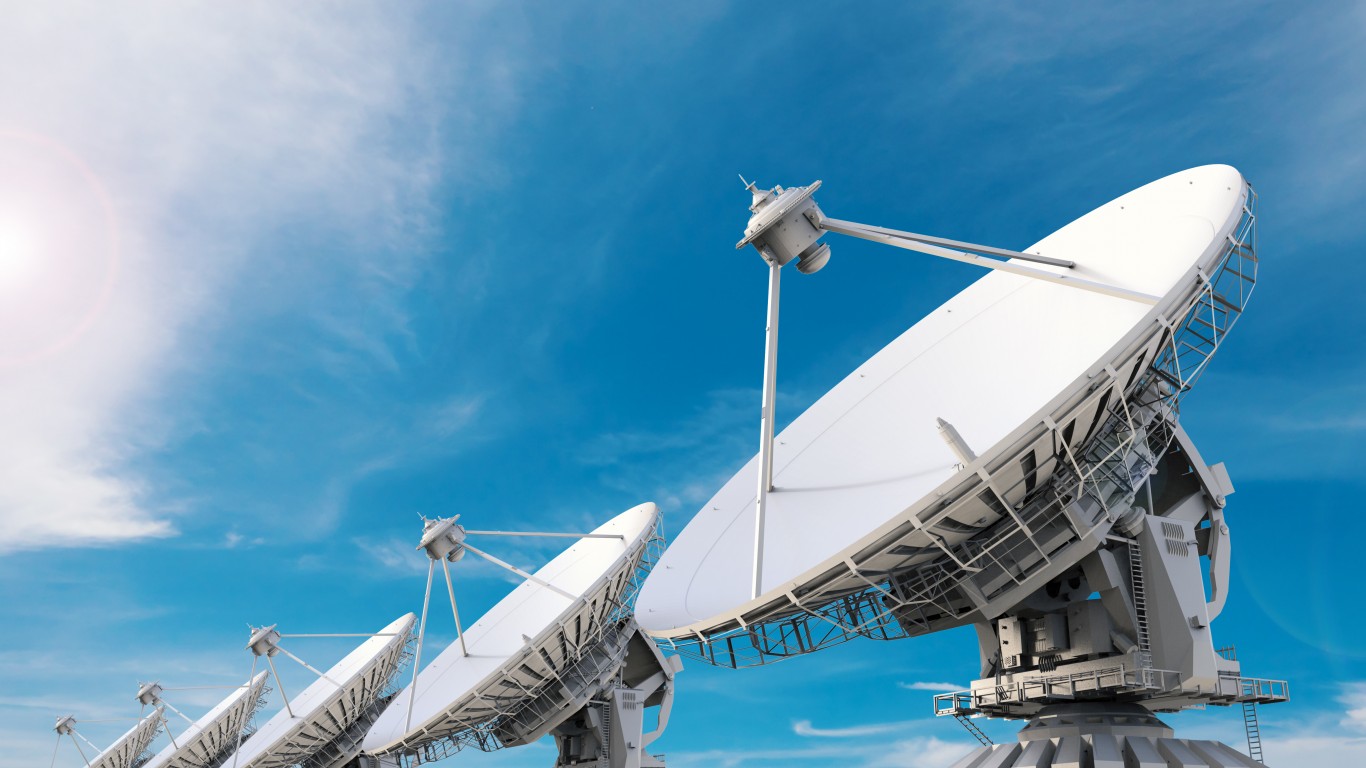
There’s nothing like getting bigfooted by the federal government to send investors fleeing. That’s what happened yesterday to Intelsat S.A. (NYSE: I) following a tweet by Federal Communications Commission Chair Ajit Pai that, in a roundabout way, announced Pai’s decision to auction a valuable piece of the country’s broadband spectrum.
In letters to Senator Roger Wicker, chair of the Senate Committee on Commerce, Science and Transportation, and others, Pai said that he has decided that a portion of what is known as C-band spectrum critical to the adoption of 5G wireless connectivity would be made available through a public auction. The operative word there is “public.”
Intelsat, SES, Eutelsat and Telesat, the four major satellite communications providers, had proposed that the spectrum auction be private, allowing the three companies to reap the resulting financial windfall. All hold licenses to spectrum that the FCC plans to auction.
In his letter to Wicker, Pai emphasized four principles that the FCC “must advance” with a spectrum auction:
First, we must make available a significant amount of C-band spectrum for 5G. Second, we must make C-band spectrum available for 5G quickly. Third, we must generate revenue for the federal government. And fourth, we must protect the services that are currently delivered using the C-band so they can continue to be delivered to the American people.
Pai concluded that auctioning 280 megahertz of the C-ban through a public auction was the best way to advance those principles. Earlier this year, the four big satellite firms had formed the C-Band Alliance (CBA), and on Monday responded to Pai with the following statement:
The FCC Chairman’s indication that he intends to pursue a public auction of C-band spectrum is a significant departure from the CBA’s market-based proposal. The announcement does not address the critical involvement of the incumbent satellite operators in executing the complex task of reconfiguring and transitioning their networks. Nor does the announcement address the fundamental modification of the rights afforded by the existing FCC licenses held by the CBA members which would be required under a public auction approach.
The CBA statement goes on to mention that the federal government needs the companies’ “cooperation … to ensure the successful clearing of the C-band while protecting the incumbent broadcast services enjoyed by millions of U.S. households.” That’s a thinly veiled reference to possible lawsuits and an implicit appeal to the court of public opinion. The satellite firms use the spectrum to transmit TV programming across the United States.
Two of the CBA companies, Intelsat and SES, are based in Luxembourg, Eutelsat is based in Paris and Telesat is based in Ottawa. Two things they all have in common is that they are not U.S. firms and they wanted to benefit from the sale of spectrum for which they hold the licenses. According to a Bloomberg report, Louisiana Senator John Kennedy called the U.S. president last month to let him know of opposition to the CBA companies profiting from the sale of U.S. spectrum. Trump spoke to Pai on October 30, but “the president didn’t direct the agency on what to do,” an FCC source told Bloomberg.
There are billions of dollars at stake here, and Intelsat and SES could both use a few to pay down debt. Senator Wicker and others introduced legislation on Monday that would require a C-band spectrum sale by the end of 2020, with the federal government retaining at least 50% of the proceeds. The FCC has not specified how much, if any, of a public auction’s proceeds it would share with the companies, but the CBA proposal for a private auction is well and truly dead.
Intelsat stock dropped 40% Monday to close at $8.03, after posting a new 52-week low of $6.71. Shares plunged nearly 30% lower on Tuesday to post another new low of $5.55 by mid-morning. The 52-week high is $29.54, and the 12-month price target was $28.78 before Pai’s tweet.
After much deliberation and a thorough review of the extensive record, I've concluded that the best way to advance these principles is through a public auction of 280 megahertz of the C-band conducted by the @FCC's excellent staff.
— Ajit Pai (@AjitPai) November 18, 2019
Earlier today, the @FCC sent letters to various elected officials outlining my decision in the C-band proceeding. https://t.co/AkixbUDdlh pic.twitter.com/wjOtDLp6q1
— Ajit Pai (@AjitPai) November 18, 2019
Get Ready To Retire (Sponsored)
Start by taking a quick retirement quiz from SmartAsset that will match you with up to 3 financial advisors that serve your area and beyond in 5 minutes, or less.
Each advisor has been vetted by SmartAsset and is held to a fiduciary standard to act in your best interests.
Here’s how it works:
1. Answer SmartAsset advisor match quiz
2. Review your pre-screened matches at your leisure. Check out the advisors’ profiles.
3. Speak with advisors at no cost to you. Have an introductory call on the phone or introduction in person and choose whom to work with in the future
Thank you for reading! Have some feedback for us?
Contact the 24/7 Wall St. editorial team.
 24/7 Wall St.
24/7 Wall St.


